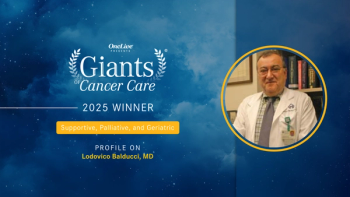
Introduction: Radioactive Iodine-Refractory DTC
For High-Definition, Click
Moderator, Ezra Cohen, MD, introduces a panel discussion focused on current and future trends in the treatment of patients with thyroid cancer. The conversation includes multidisciplinary perspective from Marcia S. Brose, MD, PhD, Naifa L. Busaidy, MD, Gary L. Clayman, DMD, MD, Manisha H. Shah, MD, and Francis P. Worden, MD.
The standard frontline therapy for patients with differentiated thyroid cancer (DTC) consists of surgery with radioactive iodine (RAI). This approach is effective in a majority of patients; however, 10-15% will develop RAI resistance. DTC is generally considered RAI-refractory if prior doses exceed 600 mCi, progression occurs within 12 months, or target lesions exist that do not take up RAI, notes Worden.
For patients with RAI-refractory local regional DTC, surgery is a viable option, even if distant disease is present, notes Clayman. In general, a single dose of RAI is administered upfront, followed by imaging to gauge response, notes Busaidy. If a patient responds, RAI is continued; however, those considered refractory or resistant require alternative treatment.


































